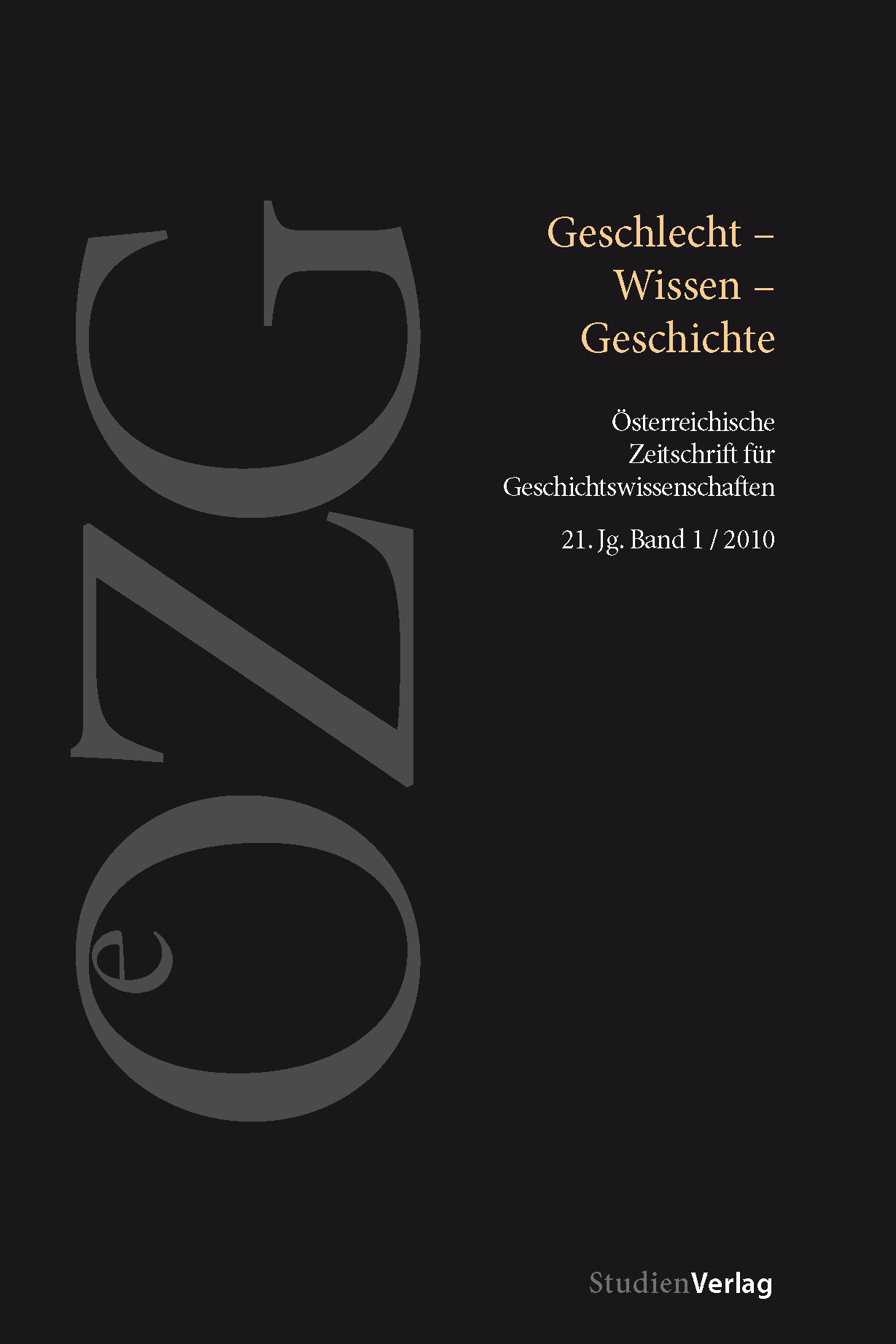Konsensuales, kontroverses oder plurales Wissen?
Zum Spannungsverhältnis von Frauenbewegung und NS-Frauenforschung in den 1980er und frühen 1990er Jahren
DOI:
https://doi.org/10.25365/oezg-2010-21-1-8Schlagworte:
Historikerinnenstreit, gender-knowledge, women’s history, national socialism, feminismAbstract
The text focuses on the relationship between feminism as political movement and feminist science in the first decennium of the emerging women’s history (roughly spanning the 1980s). This relationship is to be understood as a correlation of different formations of gender-knowledge (i.e. what we are knowing about gender and why) originating in differing frames of reference: political and scholarly feminism. In both fields terms like “feminism” or – later on – “gender” meant something different, and even contradictory. Drawing particularly on the theory of Alfred Schütz and on current theoretical considerations on gender-knowledge (e.g. Angelika Wetterer), the article analyzes the controversy between Gisela Bock and Claudia Koonz during the later 1980s and the beginning of the 1990s – the so called Historikerinnenstreit. This debate about the female experience during the period of National Socialism arose from different views on women’s place in that society and on their share of responsibility for the crimes committed during that time. In it, political and scholarly gender-knowledge were mingled and stirred an unusually fierce controversy. By focussing on the deeper meanings of that debate, by taking into account the studies on women’s history published by both scholars and, more generally, the broader range of contemporary research addressing women’s history in the “Third Reich”, it can be demonstrated that the relationship between political and scholarly feminism did not simply – like often assumed – develop from a general consensus into more controversial and plural forms of knowledge. Instead there were fierce debates already in the early years of women’s history. Thus, the then developed and used analytical concepts – for example the dichotomy of the private vs. the public – must be viewed with a special sensitivity for the peculiar mix of political and scholarly gender-knowledge which inspired and informed each of these concepts.


